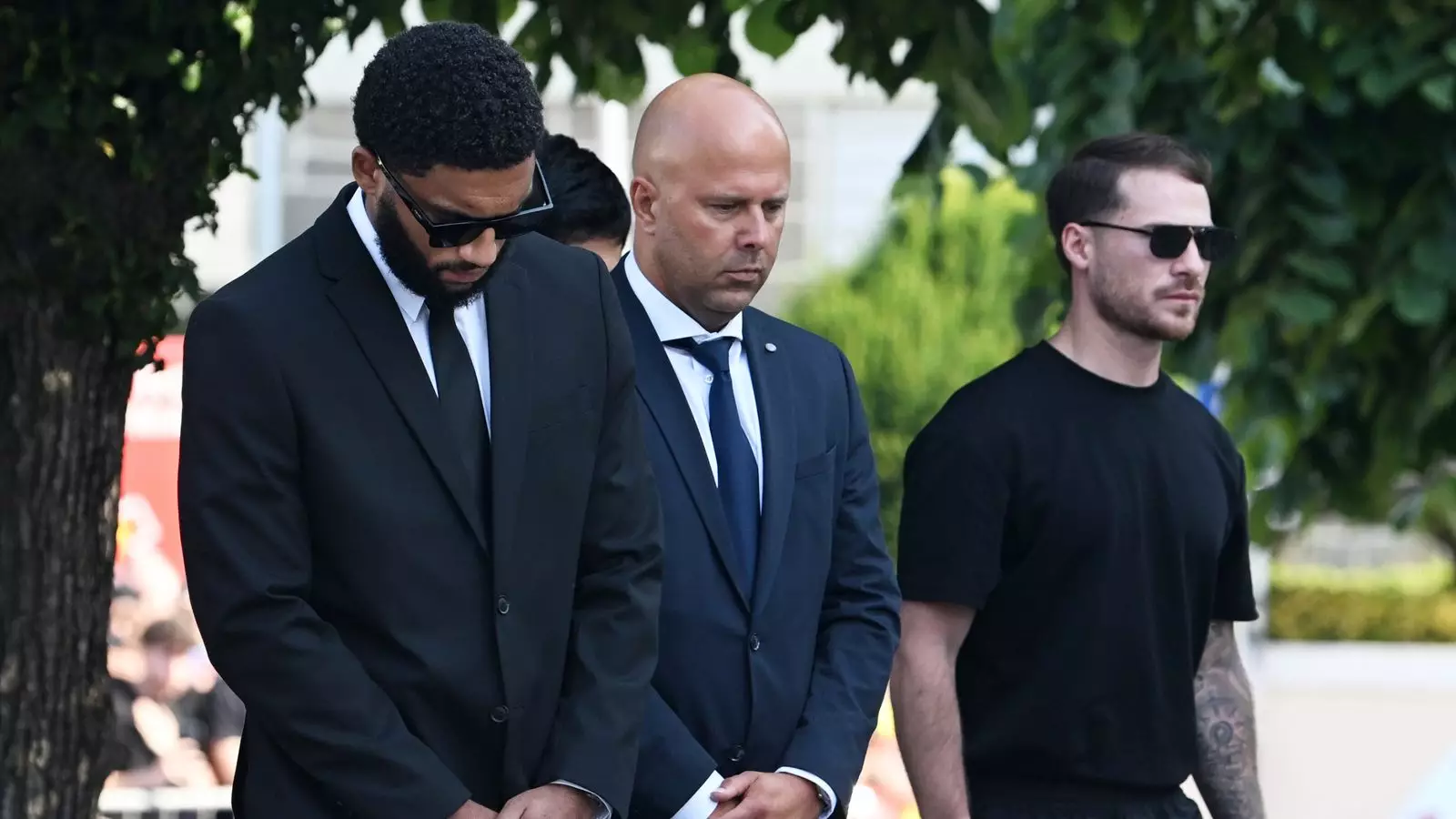Football, often celebrated as a bastion of excellence, entertainment, and national pride, frequently masks a much more fragile human reality. Beneath the glitzy veneer of stadiums packed with screaming fans and lucrative contracts lies a sobering truth: these athletes are also vulnerable, emotionally complex beings subjected to the same unpredictable forces of life as everyone else. The recent tragic loss of Diogo Jota and his brother Andre Silva starkly exposes this disparity. It is a tragic reminder that fame and talent do not grant immunity from the cruel twists of fate. While professional athletes are often idolized and commodified, their personal lives are just as fragile, their hearts just as susceptible to grief and loss, if not more so because of the constant pressure and public scrutiny they endure.
The Cost of Fame: Personal Pain in the Spotlight
The funeral service in Gondomar was more than a somber farewell; it was a testament to how interconnected these players are not only on the pitch but also in their personal lives. The presence of Liverpool’s past and present stars, alongside Portuguese football legends and national team icons, underscores an essential truth: these individuals are part of a wider familial network that sustains them through triumph and tragedy. Yet, this closeness also magnifies the pain of loss. In the face of grief, the superficial veneer of resilience often crumbles, revealing inner struggles that are rarely acknowledged publicly. The heartfelt messages from teammates like Alexis Mac Allister and Ruben Neves illustrate that in moments of profound grief, the game’s glitz fades away, replaced by raw human emotion. Their camaraderie and collective mourning humanize these figures, reminding us that they, too, are susceptible to life’s unpredictable hardships, just as we are.
The Illusion of Immortality and the Need for Genuine Support
It is tempting to view top-tier athletes as beings apart from real suffering, immune to the vulnerabilities that afflict ordinary lives. The reality is quite the opposite. The tragic death of Jota and his brother exposes the dangerous illusion that fame equates to invincibility. This illusion perpetuates a harmful narrative that athletes can or should be stoic in the face of personal tragedy. However, genuine support requires acknowledgment of their humanity—an acknowledgment sorely lacking in a sports culture fixated on perfection and resilience. The outpouring of grief from the football community highlights the importance of fostering authentic emotional spaces within competitive sports. Such tragedies should serve as catalysts for a broader conversation about mental health, grief, and the importance of compassionate support networks beyond the applause and headlines.
Society’s Role in Reframing Heroism and Vulnerability
The broader societal narrative surrounding athletes—and society at large—must evolve. We need to recognize that heroism is not synonymous with emotional invulnerability. Celebrating strength does not mean ignoring vulnerability; instead, it involves creating environments where emotional expression is normalized and supported. The public mourning of Jota and Silva challenges us to rethink how we perceive success, resilience, and human frailty. It calls us to cultivate empathy, to provide psychological support, and to accept that behind every accolade is a person with fears, loves, and losses. The tragedy compels us to reevaluate the cultural obsession with invincibility and instead champion a model of humanity that values openness, compassion, and collective healing—especially for those who carry the burden of public expectation.



Leave a Reply